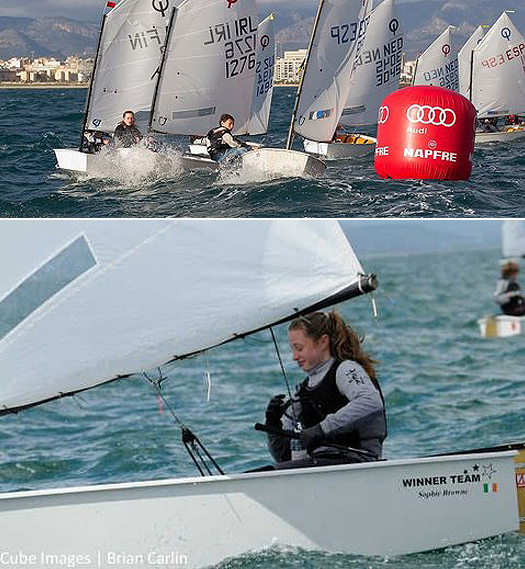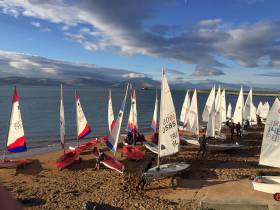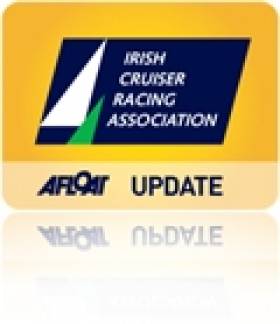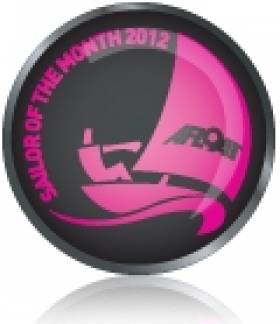Displaying items by tag: TBSC
Tralee Bay Maritime Hosts Inaugural Dinghy Race Clinic
Tralee Bay Maritime Centre have over 50 boats on the water this week at Fenit in County Kerry. Brian O'Sullivan, Centre Principal, told Afloat.ie he is delighted with the response to the performance coaching clinic, led by Thomas Chaix, with some of the best junior sailors in the country coming together in three different dinghy sailing classes - Lasers, Toppers and Optimists.
Coaches from Greece, Portugal, France, Poland and Ireland have their hands full with a massive turnout for the inaugural clinic at Europe's most westerly port.
ICRA Nationals 2013; Tralee Bay Sailing Club, June 13 - 15th
#icra – A series of feeder races to Kerry for the 2013 Irish Cruiser Racer Association (ICRA) Nationals at Tralee Bay Sailing Club (TBSC) could swell numbers to 70 boats or higher for the Fenit event according to estimates coming from ICRA's annual conference in Kilkenny on Saturday. PDFs of the Notice of Race, entry form and event advert and flyer are available for download below.
The major event for Fenit Bay next season will be preceded by the WIORA West Coast Championships (June 12 - 14th 2013) and as both events will be staged in the same week along with a shore based family based Sea Breeze festival, the Kingdom is preparing for a big celebration of sailing 'craic' next Summer.
TBSC are also aiming to contribute to 'The Gathering' initiative by inviting overseas crews to sail back home for a racing week in the most westerly port in Europe.
Championship organiser Brian O'Sullivan previewed the June 13-15 event for the ICRA delegates on Saturday and there was a lively discussion on making the national championship a no-discard event as well as writing new alternative on the water penalties into this year's sailing instructions.
O'Sullivan confirmed feeder races will include the Dun Laoghaire to Dingle (D2D) race (June 8th) with D2D race organiser Martin Crotty offering to accommodate as many ICRA racers for the 180–mile race from the National Yacht Club. Races from Galway and Cork have also been designed to encourage as many boats as possible to head west.
Estimates indicate that a 40-boat WIORA fleet will be supplemented by at least 30 or more Dublin and Cork visitors giving respectable championship fleet sizes.
Although ICRA and Fenit organisers concede the remote location from the big Dublin cruiser fleets might be an obstacle on reasons of cost in the current climate, the decision is nevertheless in keeping with ICRA's ethos of sharing the championships around the coast on a yearly basis. (The next championships is scheduled for Dun Laoghaire at the Royal Irish YC in 2014).
Course types were also discussed on Saturday. Research from the 2012 ICRA championships in Howth showed cruiser racer fans are split on course types. Some favour windward leeward courses but others are keener on round the cans course configurations. International Race Officer Alan Crosbie will lead the race management team on the water.
A mix of courses produces more accurate results under the IRC handicap rule and as there appears to be a ground swell away from pure windward-leeward courses the intention in Fenit is to run three separate course types over the two seven race WIORA and ICRA series from Brandon Point to Kerry Head.
Tralee's Sophie Browne is January Sailor of the Month
#SAILOR OF THE MONTH – Sophie Browne of Tralee Bay and Royal Cork is Afloat.ie/Irish Independent "Sailor of the Month" for January after taking the Silver Medal in the Girls Division in the Optimist Worlds in New Zealand. She added it to the Gold in the Girls, and fourth overall, which she won from an enormous fleet in the last major European regatta of 2011, at Palma, Mallorca in December.

Sophie in action abroad in Palma (top) and at home
It's some going when you're just fourteen. Sophie is back at school now, trying to make up for lost study time. But if she gives it the same total dedication she put into each sailing campaign during recent years, she'll sail into a good leaving cert in due course.
Dedication is the name of the game, and the Browne family in Tralee are a byword for it. Normally, the adjudicators for the Sailor of the Month are very reluctant to make the award to the most junior helms. They grow up so quickly, there's something ephemeral about it all.
But even at only fourteen, there's nothing ephemeral about Sophie's success. Other kids may think too much about the glitzy side of championships, but Sophie Browne is well aware of the sheer hard work and unglamorous dedication which goes into that podium place.
After the big regatta in Palma in December, the European Optimist squad went out to New Zealand with high hopes. But the pre-Worlds and the Worlds were salutary experiences. Thoughtful observers were well aware of the rising talents of southeast Asia, and South America too, as well as New Zealand and Australia, but for most it was a daunting learning experience.
It's Singapore which is most clearly setting the pace. Kimberly Lim from the vibrant city-state was both top girl, and the new world champion. Sophie Browne was second in the girls, but was back in 13th overall. Yet she was still one of the best of the Europeans – the top British sailor, for instance, was back in 21st.
It's the first time a 14–year old helm has taken the monthly sailor title. We've had younger sailors sharing a title as crews on a Mirror dinghy, but this is the first driver. And we're certain sure it won't be the last we'll hear of Sophie Browne of Tralee Bay in international sailing.
































































